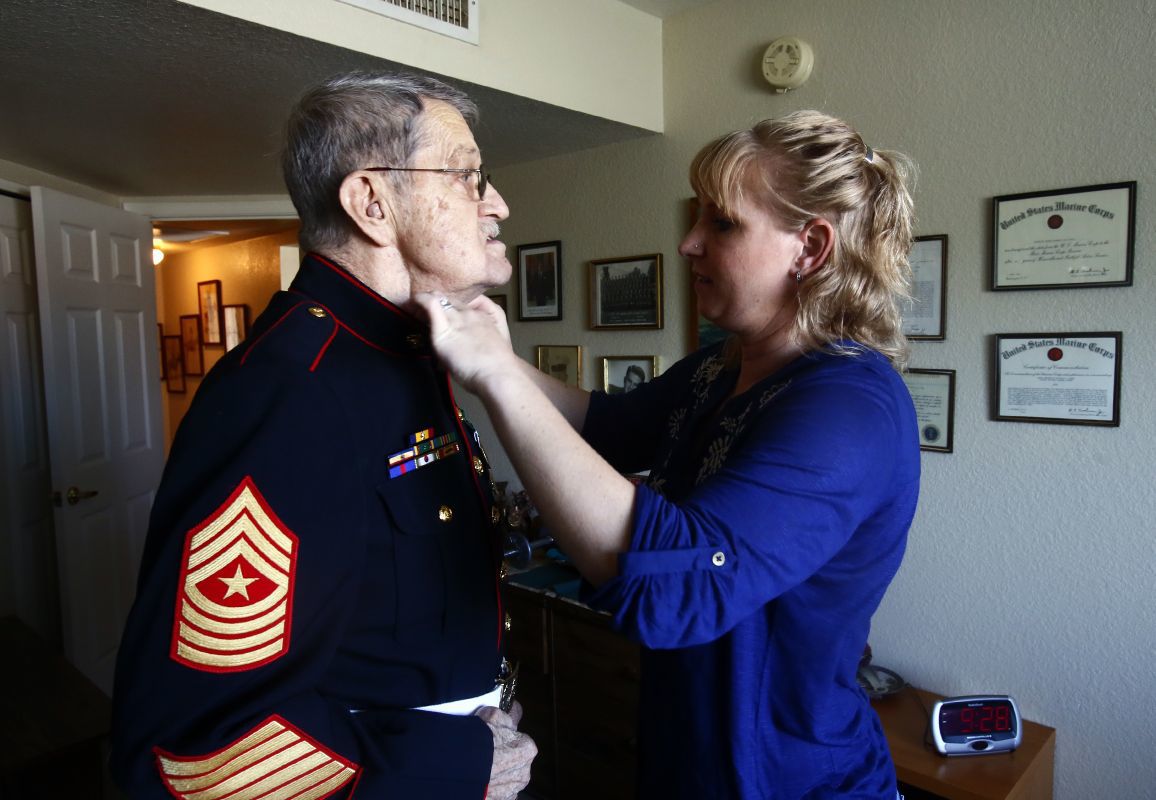The following column is the opinion and analysis of the writer.
November is not only National Veterans Month but also National Family Caregivers Month, a time to recognize and thank the more than 40 million family caregivers in the U.S. This November, we should honor and pay respect to both: those who served our country in uniform and the hidden heroes caring for our veterans at home.
There are about 20 million veterans in the U.S., with the majority having served during the Vietnam Era. More than 522,382 veterans live in Arizona. With longer life spans and potential health problems stemming from their military service, our ability to provide adequate care for a veteran now requires more action and resources than ever.
While 3 out of 5 veterans use the VA Health Care system for their health-care, assistance with their everyday needs falls squarely on the shoulders of a caregiver. There are 5.5 million veteran caregivers providing $14 billion annually in unpaid care to those who served and sacrificed for our nation.
Caring for a veteran is complex. Veteran caregivers must navigate the VA system and often support loved ones with service-related conditions, such as PTSD or battlefield wounds, that can demand more attention. For Vietnam Era veterans, those issues can consist of 11 recognized symptoms including two different types of cancer. Moreover, studies show that the impact to veteran caregivers makes them twice as likely at risk for major depressive disorders as noncaregivers.
The VA has pledged to make greater strides to support veteran caregivers with the new Mission Act law. However, these are features added to an already heavily burdened system.
AARP continues to fight for all family caregivers. Most recently, the Recognize, Assist, Include, Support and Engage (RAISE) Family Caregivers Act signed into law, in January 2018, requires a newly established advisory council to focus on priorities that cover improved home and community-based services, enhanced respite care options and streamlined information. In addition, AARP and the Elizabeth Dole Foundation created a “Military Caregiving Guide” to help families develop a plan and navigate common caregiving challenges.
Despite these efforts, more needs to be done. Many of the veteran caregivers supporting a loved one suffering service-connected ailments find themselves having to quit jobs or seek part-time work to continue the care. Most of the programs designed for military and veteran care provide scant resources for the caregiver or leave them out altogether.
Honoring and thanking our heroes is important, but creating and supporting meaningful change to give the structural support for our veteran caregivers is the best way to honor those who served our country and the frontline family members called into duty at home.
This November, we ask that you support your state’s efforts to lend a hand to our veteran caregivers supporting our heroes every day — we can honor and do right for both.
For more information on how AARP is working for Veterans, visit www.aarp.org/veterans.





